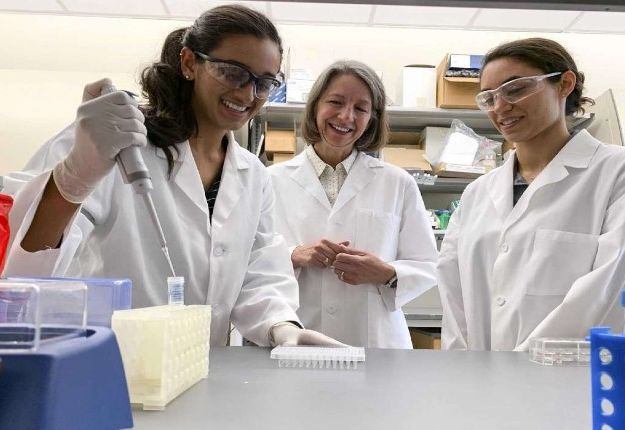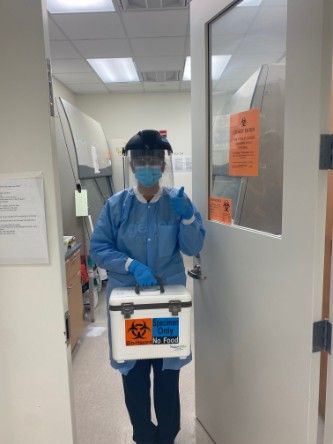Kathryn Kundrod ’15 was busy working on her PhD in bioengineering at Rice University when COVID-19 was declared a pandemic in March 2020. She and her research partners began investigating what sort of coronavirus diagnostic testing was available and saw that it wasn’t increasing to the levels they thought it should.
Kundrod’s research pre-pandemic had been to develop a low-cost HPV/cervical cancer test, specifically for use by Rice University collaborators in the African countries of Malawi and Mozambique. Wanting to help out in the coronavirus emergency, they realized that they could create their own COVID-19 test using the platforms for HPV and other applications they’d been developing and validating for years.
Working nearly around the clock, Kundrod and her fellow researchers aimed for a test that could be used in a limited-resource setting, without needing large hospitals or laboratories with expensive testing equipment and highly trained staff to run.
“We wanted to get a test into the hands of our partners in Malawi and Mozambique as soon as possible,” Kundrod said. “We needed to develop it, validate it in the United States within the regulatory standards, and get it to our collaborators to use with their patients.”
The team is currently in the validation stage, running clinical studies in Houston. They’re comparing their test to that of the Centers for Disease Control and Prevention (CDC) and have nearly arrived at a prototype that works well. The next step will be to apply for the Food and Drug Administration’s Emergency Use Authorization that would allow a clinical lab to use the test in the United States. Kundrod said they hope to have a test ready for use by fall 2020.
Where the CDC test must be sent away to a lab for analysis and takes hours to run, Kundrod said her team’s test would take about 45 minutes to run on-site and could be performed without a high level of training. The applications for such a test, besides Rice’s partners in Africa, might include doctor’s offices, drive-through testing facilities, nursing homes and assisted living centers, prison populations, and even universities and K-12 schools.
Read the full story in the Lehigh University News Center.
Story by Cynthia Tintorri


